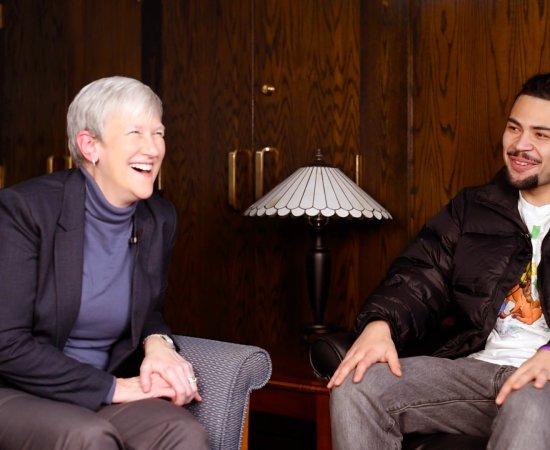
Occupational Therapy Post-Professional Doctorate (online)
About This Program
We understand that working OTs need the flexibility of online learning for professional growth. That's why Utica University pioneered the OT Weekend program in the 1980s and now offers a completely online post-professional Occupational Therapy Doctorate (PP-OTD).
Department
Why Utica University
Utica University’s 100% online post-professional Occupational Therapy Doctorate (OTD) offers practicing licensed occupational therapists the post-professional degree they need to advance their careers. Students may study either full-time or part time with a Spring or Fall start.
Designed specifically for licensed occupational therapy professionals, students are provided with course options allowing them to plan their program of study to focus on individual career goals. Centered on the view of an occupational therapist as change agent, requiring knowledge and skills in a variety of roles, successful graduates complete coursework in advanced practice, education, advocacy, theory development and leadership. A capstone project provides an opportunity to demonstrate achievement of program goals.
Students admitted into the Post-Professional Occupational Therapy Doctorate program must:
- hold a current unencumbered license in occupational therapy,
- either be currently employed in, or have 2 years of experience in, Occupational Therapy,
- have a masters’ degree in occupational therapy with a GPA of 3.0 or above,
- have earned at least 42 credit hours of graduate level work
- provide two (2) recommendations from graduate faculty members or professionals in the field, and
- submit evidence of writing ability (master’s thesis/capstone project or a portfolio of substantial documents) with your application.
Contact Information
Rayna Seabury
Dr. Colleen Sunderlin
General Information
What You'll Learn
Successful graduates from this program will become change-agents demonstrating the knowledge and skills to competently perform as:
- Advanced Best-Practice Occupational Therapists - Graduates will be able to analyze and evaluate best practices, synthesizing information from a variety of sources in order to apply those practices to individuals, populations and communities in multiple contexts and across systems.
- Educators - Graduates will be able to analyze and evaluate educational theory, applying that understanding, as well as instructional design, to the creation of educational experiences.
- Advocates - Graduates will be able to apply an understanding of systems analysis to identify when such systems either impede or facilitate occupational justice and health equity. Students will select and appraise strategies for their ability to advocate for systems change.
- Theory Developers - Graduates will be able to apply the process of theory development to an identified area that would benefit from an alternative perspective or model of practice to ensure occupational justice for individuals, populations and communities.
- Leaders - Graduates will be able to analyze and evaluate current models of leadership in order to adopt a model appropriate to a specific context, enabling them as leaders to enact beneficial changes.

Health Professions at Utica University
University News

Introducing Campus Catch-Up

A graduation date spawning half a century of marriage: - Ron ’70 and Fran Pytko

Alums to gather for trio of events in Florida




